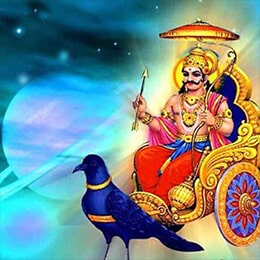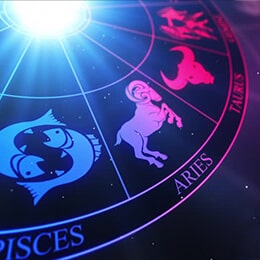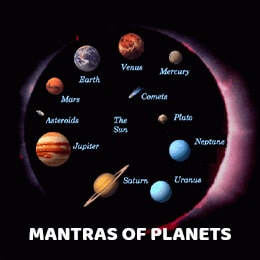What is Planetary Transit and how it's Judged in Astrology.
Transit should be seen from Moon, Sun or ascendant ?
The movement of a planet in a sign indicates it's effect on human beings. The ancient sages have recommended for the use of sign where Moon is situated in the natal horoscope. The situation of a transiting planet at a particular time from Moon sign indicates the result of transit for that time.
The method of writing a horoscope has remained unchanged for hundreds of year. The natal horoscope indicates the fixed results from birth to death. The position of planets in the sky at the time of birth, their mutual relationships and their results are indicated by natal horoscope centered around ascendant (Lagna Kundali). This indicates results about all its houses. The moon chart is generally not used for the purpose.
The 3 types of lagnas (ascendants) are popular in astrology. Birth ascendant, Moon ascendant and Sun ascendant. Which ascendant should be seen for results of transit, birth ascendant, Moon or Sun? All ascendants signify different matters. Birth ascendant signifies body, Moon tells about mind and Sun represents soul. The native is made by the combination of all three. The soul cannot assert itself without body. Body is controlled by mind. Mind controls all senses and organs of body. Therefore importance of Moon ascendant is uppermost. Mantreshwar has also advocated for study of transit by Moon.
सर्वेषु लग्नेषु अपि सत्सु । चन्द्र लग्नम् डा धानम् खलु गोचरेषु ||
Amongst all ascendants (Birth ascendant, Moon and Sun), Moon is supreme for transit analysis.
Vrihat Parashar Hora shastra advocates prediction by ascendant as well as Moon. According to Aadhan Lagna Siddhanta Moon at the time of birth remains in the sign where he was at the time of conceiving. This indicates importance of Moon.
When analysing the results of dasha-antardasha, the sign of dasha lord in natal chart is considered as ascendant for knowing the results of a dasha. There could be 12 ascendants, that is why Moon ascendant is important.
Transit is an important part of Ashtakvarga system. The Ashtakvarga is formed by combination of ascendant and 7 planets. Ashtakvarga tells about the good-bad situations of planets. The good-bad results are arrived at by the mutual positions of planets, their friendships and naturally beneficial/adverse traits. The mutual situation of two planets indicates their good/bad results and not their situation from ascendant. The ascendants could be 12. Moon is one planet. That is why the position of a planet from Moon is important. That is why sages have chosen moon for predictions through transit because Moon is a planet as well as ascendant and controls ascendant of horoscope.
The sequence of mahadasha also starts with lord of constellation where Moon is situated i.e. life begins with Moon. Moon is also the significator of a person's teen years. That is why position of Moon is important in the horoscope of a child for knowing any danger to his life. The gandant is also seen by Moon. The importance of a tithi is also due to Moon. The constellation of a day is also seen from Moon. The constellation where Moon is posited on a day is regarded as constellation for that day.
In this way, Moon is very important in Vedic astrology. Tithi, constellation, muhurt, dasha etc. all activities are considered according to Moon. Due to this reason Moon is important for transit. Sages have advised to consider transit from Moon.
Is It Possible to Predict Only by Transit ?
Transit is an important part of Predictive Astrology but it is not everything. Our sages have stated clearly that what is missing in horoscope, cannot be given by transit.
Example
Transit works under mahadasha (Major Period) and antardasha ( Sub Period). If the operating dasha- antardasha are of adverse planets but transit is favourable the native will not have good results. Transit tells about the present situation of planets in sky from the position of planets in natal horoscope. A planet which is well placed in birth horoscope will give good results as soon as it comes in favourable situation in transit but the planet which is adverse in birth horoscope will not give good results when it comes in favourable position in transit. When the transiting planets come in the same sign and degrees of its position in birth horoscope, their results are clearly visible. Suppose Venus is posited in Taurus in 18° in natal horoscope. When Venus will come again in transit in Taurus in 18°, its good or bad results will be seen. In this way transiting planets remain under the influence of natal planets.
If a planet is exalted or in own sign in birth horoscope, it will not give bad results when it comes in an adverse position in transit. The results of transit are based on position of planets in birth horoscope.
The study of transit rules indicates that transit also remains under the influence of dasha and antardasha. A house of the horoscope signifies many aspects. For example the 4th house signifies mother, education, vehicles, land, agriculture, comforts etc. Which item out of these will materialize depends on dasha-antardasha. Transit follows the desires of dashas. Transit results also depend on Tara. The 1, 3, 5, 7 tara from birth constellation are adverse.
Transit is an important part of Astakvarga System. In Ashtakvarga good/bad position of a planet are arrived at by considering ascendant and planets as centre. An ashtakvarga.chart is prepared for each planet and good/bad results of transit are predicted on its basis. The results of transit also depend on bindus of ashtakvarga chart.
The result of transit is arrived at by combining the results of all transiting planets. The result of a single planet is not important as a planet is only a part of solar system. As there are various parts of body-head, eyes, nose etc. Their combination forms body. Similarly the result of transit is arrived at by combining the effects of all transiting planets. That is why the individual transit of each planet Saturn, Jupiter etc gives different result in each cycle.






































